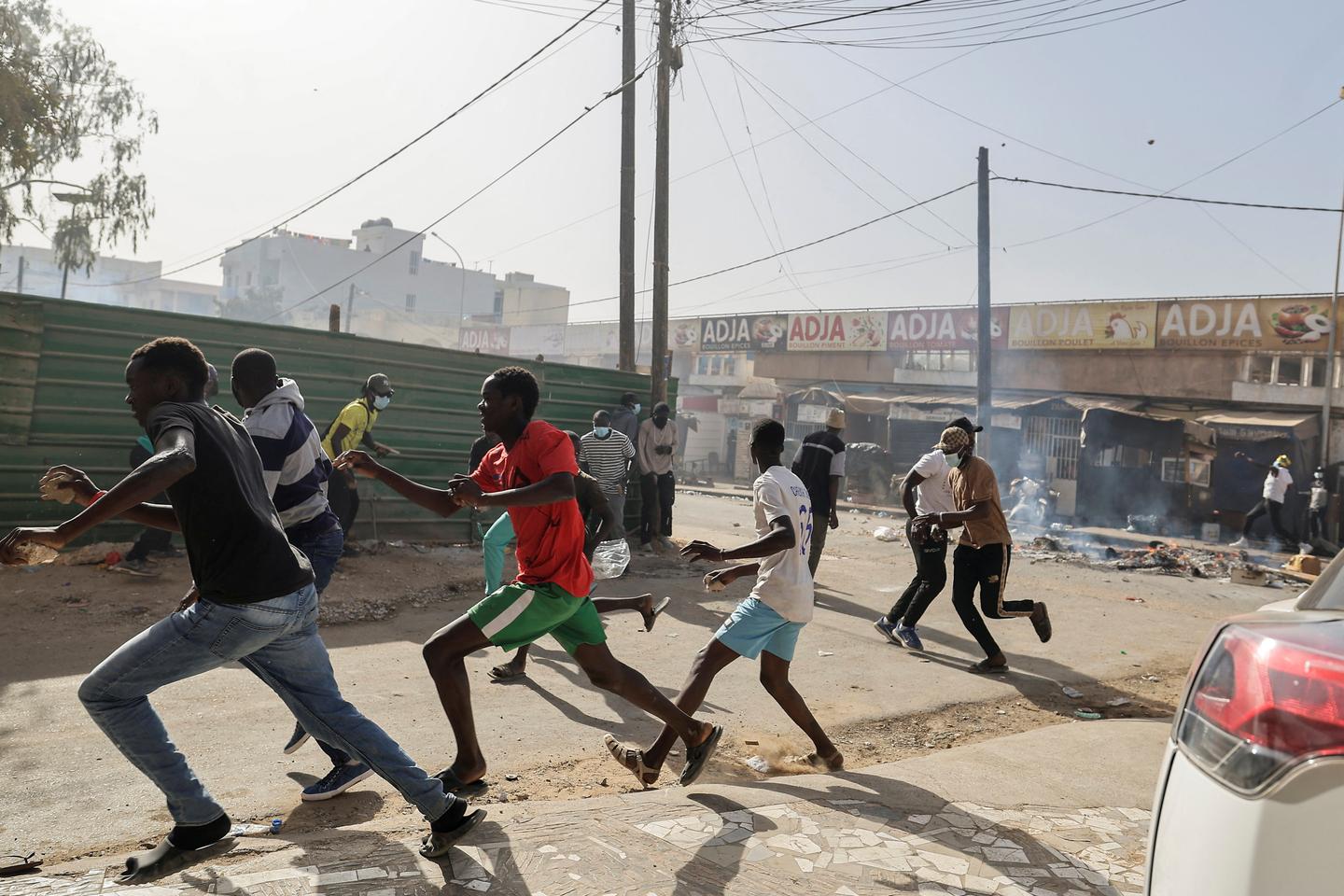


President Macky Sall has postponed Senegal's presidential election three weeks before the vote. Military putschists in Mali, Burkina Faso, and Niger have announced their intention to leave the Economic Community of West African States (ECOWAS) and do not seem willing to organize elections that would require them to hand over power.
Francis Laloupo is a research associate at the Institute for International and Strategic Relations (IRIS), specializing in African geopolitics and emerging conflicts. He is the author of Blues Démocratique, 1990-2020 ("Democratic Blues, 1990-2020," 2022).
How do you view Macky Sall's decision to postpone the presidential election which, according to the National Assembly vote, will now be held on December 15?
What is clear from this decision is that, since independence and the introduction of a full multi-party system in Senegal, Macky Sall has caused a fracture in the country's institutional order by establishing a state of emergency, the outcome of which is not yet known. This represents a break in the democratic consensus that had been in place since 1963, and which was consolidated in 1981 with the introduction of a full multi-party system under President Abdou Diouf. There was a kind of consensus that the system itself, whatever the storms, was unshakeable and that the democratic process was irreversible. Today, this break is the work of one man, and the Senegalese will have to rebuild a new democratic system if this crisis succeeds.
It's a dark stain on the country's history and a blow to West Africa, where, just a few days ago, Senegal was still seen as one of the pockets where democracy was somewhat safeguarded. Today, it can be considered an institutional coup d'état perpetrated with the complicity of part of the political class.
What do you think Sall's objectives are?
Macky Sall has found himself in a situation where the candidate he has nominated [his Prime Minister Amadou Ba] does not have the full support of the presidential majority. It was as if there had been a casting error, which the president decided to correct in the worst possible way. The end of his second term is now marked by disgrace. It's as if Macky Sall's only concern is to ensure the continuity of his system once he's out of power. Senegal deserves better.
What does this decision by Sall tell us? What about the tensions within the presidential majority?
With Macky Sall, we are witnessing a form of drift characterized by the strong personalization of the management of state power, a democratic setback with the confiscation of the levers of power and the placing of freedom of expression under surveillance. Taken all together, this leads to the privatization of the state and the management of electoral processes.
Is this decision likely to affect Senegal's stability?
There's a great deal of anger in Senegal today. The people feel they have been betrayed. Senegalese democracy is considered a collective heritage, and as such, every citizen feels wounded. Today, there is no guarantee that the Senegalese will resign themselves to the decision to postpone the election until December 15, as voted for by the national assembly.
What are the consequences for the region of this postponement, which comes just days after Mali, Burkina Faso and Niger announced their withdrawal from ECOWAS?
At a time when the organization is going through an existential crisis, it needed to draw on the support of certain countries in the region that could serve as a benchmark for positioning itself in relation to the countries of the Alliance of Sahel States [Mali, Burkina Faso and Niger]. In a way, Macky Sall's action is an encouragement to the region's coup plotters, who will no longer have any qualms about leaving ECOWAS.
Does this mean the end of ECOWAS and its ambition to promote democracy since the 1990s?
This is a time of crisis. Some people are jumping to radical conclusions, but it's important to remember that ECOWAS is a regional organization under construction. A series of crises are not likely to undermine its existence. It needs to create and reinvent new tools to adapt to the new forms of crisis the region is experiencing. ECOWAS must move with the times. The power of its commission must be strengthened to make it more operational, and thereby move away from an organization of heads of state. ECOWAS is faced with a number of multifaceted crises, but beyond the political ups and downs, the organization is an absolutely indispensable tool for the region. I'm convinced that the future belongs to supranational institutions rather than to states.
Between the coups and the constitutions amended to allow leaders to serve a third term, who can now serve as an example in West Africa?
When we take stock today, it's clear that the countries showing the greatest virtue in terms of democratic development are Cape Verde, Ghana, Nigeria, and very subtly Liberia and Sierra Leone. Despite their internal turbulence, they are not challenging the democratic system. Objectively speaking, it's the French-speaking countries that are in crisis in the region.
